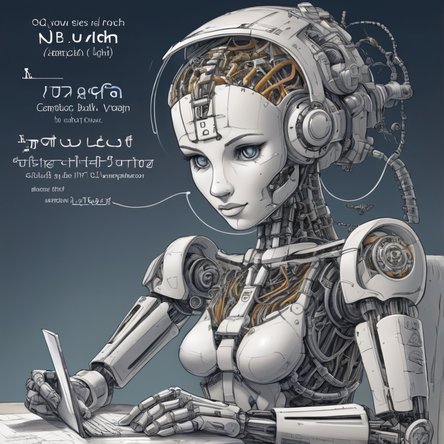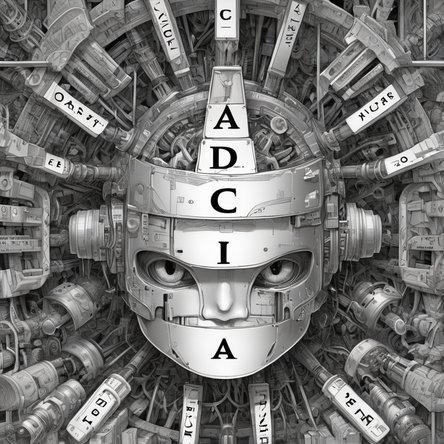What is CAPTCHA?
CAPTCHA stands for "Completely Automated Public Turing test to tell Computers and Humans Apart." It is a type of challenge-response test used in computing to determine whether or not the user is human. The term was coined in 2000 by Luis von Ahn, Manuel Blum, Nicholas J. Hopper, and John Langford, all of whom were affiliated with Carnegie Mellon University at the time. The main goal of CAPTCHA is to prevent automated software, commonly known as bots, from performing actions that are reserved for humans. This is crucial in many online applications to protect against spam, fraud, and abuse.
The Origin and Evolution of CAPTCHA
CAPTCHA has evolved significantly since its inception. The original CAPTCHAs were relatively simple and involved the user identifying distorted text in an image. This method was effective initially because computers struggled with recognizing distorted characters, while humans could easily decipher them. However, as optical character recognition technology improved, these simple text-based CAPTCHAs became less effective.
In response, more complex CAPTCHAs were developed. These include image-based CAPTCHAs where users are asked to identify objects in a set of images, audio CAPTCHAs for visually impaired users, and even CAPTCHAs that require users to solve a simple puzzle or mathematical problem. The evolution of CAPTCHA continues as developers strive to stay ahead of increasingly sophisticated automated systems.
How CAPTCHA Works
The basic principle behind CAPTCHA is to generate a test that is easy for humans to solve but difficult for computers. This is achieved by leveraging the current limitations of artificial intelligence and machine learning. For example, while a human can easily recognize a cat in a photo, it can be challenging for an algorithm to do so, especially if the cat is partially obscured or in an unusual pose.
Modern CAPTCHAs often use a combination of tasks to increase security. For example, a user might be asked to identify all images containing a specific object and then solve a simple math problem. This multi-layered approach makes it more difficult for automated systems to bypass the CAPTCHA.
The Importance of CAPTCHA in Cybersecurity
CAPTCHA plays a vital role in cybersecurity by protecting websites and online services from various forms of abuse. Some of the key areas where CAPTCHA is crucial include:
- Preventing Automated Account Creation: Many online services, such as email providers and social media platforms, use CAPTCHA to prevent bots from creating fake accounts. These fake accounts can be used for spamming, spreading malware, or other malicious activities.
- Mitigating Comment and Form Spam: CAPTCHA is commonly used on websites that allow user-generated content, such as blogs and forums, to prevent automated systems from posting spam comments or submitting forms with malicious content.
- Protecting Online Polls and Surveys: CAPTCHA ensures the integrity of online polls and surveys by preventing bots from skewing the results. This is important for maintaining the credibility of the data collected.
- Preventing Ticket Scalping: CAPTCHA is used on ticketing websites to prevent automated systems from purchasing large numbers of tickets for events, which are then resold at inflated prices.
The Challenges and Limitations of CAPTCHA
While CAPTCHA is an effective tool for distinguishing humans from bots, it is not without its challenges and limitations. Some of the common issues include:
- Accessibility: Traditional text-based CAPTCHAs can be difficult for individuals with visual impairments to solve. While audio CAPTCHAs are available, they can be challenging for people with hearing impairments or in noisy environments.
- Usability: CAPTCHAs can sometimes be frustrating for users, especially if the challenge is difficult to solve or takes too long. This can lead to a negative user experience and potentially drive users away from a website.
- Advancing AI: As artificial intelligence and machine learning technologies advance, it becomes increasingly difficult to create CAPTCHAs that are easy for humans but hard for computers. This ongoing arms race requires constant innovation and adaptation.
The Future of CAPTCHA
The future of CAPTCHA lies in developing more sophisticated methods that can adapt to the evolving capabilities of artificial intelligence. One promising approach is the use of behavioral biometrics, which analyzes the unique ways in which users interact with a website, such as their typing patterns, mouse movements, and scrolling behavior. These patterns are difficult for bots to mimic accurately, making them an effective means of distinguishing humans from automated systems.
Another emerging trend is the integration of CAPTCHA with machine learning algorithms that can dynamically adjust the difficulty of the challenge based on the user's behavior and context. For example, a known and trusted user might be given a simpler CAPTCHA, while a new or suspicious user might face a more complex challenge.
CAPTCHA and User Privacy
As with any technology that collects and analyzes user data, there are privacy considerations associated with CAPTCHA. It is essential for organizations that implement CAPTCHA to be transparent about what data is being collected and how it is used. This includes providing clear privacy policies and ensuring that data collection is compliant with relevant regulations, such as the General Data Protection Regulation (GDPR) in the European Union.
Conclusion
CAPTCHA is a critical tool in the fight against online fraud and abuse. By creating challenges that are easy for humans but difficult for bots, CAPTCHA helps to protect websites and online services from automated attacks. While there are challenges and limitations associated with CAPTCHA, ongoing innovation and adaptation ensure that it remains an essential component of cybersecurity. As technology continues to evolve, so too will the methods used to distinguish humans from machines, maintaining the delicate balance between security and usability.




